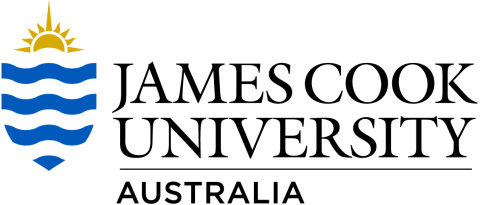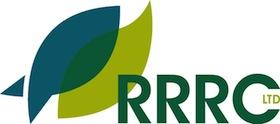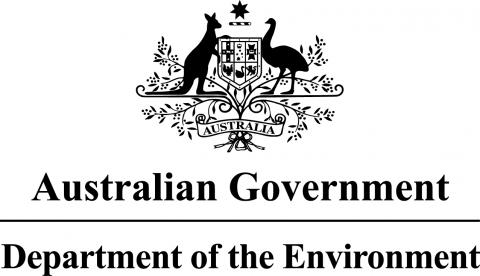Resources
Colette Thomas and Iain Gordon (CSIRO), Scott Wooldridge (AIMS) and Paul Marshall (GBRMPA) have won Risk Management Paper of the Year (2012) from the Journal of Human and Ecological Risk Assessment (HERA).
The paper, entitled “Balancing the trade-offs between ecological and economic risks for the Great Barrier Reef” came out of work carried out under the Marine and Tropical Sciences Research Facility, the fore-runner of the National Environmental Research Program.
The authors provided a conceptual framework of the Great Barrier Reef social–ecological system identifying a range of possible socioeconomic tradeoffs necessary to maintain the resilience of the reef under climate change. The conceptual framework is the first step toward development of a functional analytical tool capable of helping policy-makers choose between alternative management actions.
A HERA editorial board member commented, 'Development of a conceptual framework for the management of the Great Barrier Reef ecological system is of great utility for stakeholders and policy makers. The paper provides an excellent example of weighing benefits in decision-making for an iconic global wonder.' The award was based on two selection criteria: (i) degree of contribution to the field of risk analysis, and (ii) overall quality of writing.
The award was announced in the May-June 2013 issue of HERA.
Link to the online article here.
JCU
News Release
03 June 2013
James Cook University researchers are recording underwater sounds in the Great Barrier Reef to help track animal movements and human activities such as shipping.
JCU’s Centre for Sustainable Tropical Fisheries and Aquaculture (CSTFA) is collaborating with JASCO Applied Sciences, a world leader in the science of industrial underwater noise and its effect on marine life, on the project. Read more
JCU
Media Release
30 September 2013
Researchers from James Cook University are leading a new project designed to ensure sustainable use and conservation of Australia’s sharks and rays.
Funded by the Australian Government’s Fisheries Research and Development Corporation the project will provide a report card on the status of all of Australia’s sharks and rays, and build a database of science outputs that can be used by fisheries and environmental managers. Read more
The Hon Mark Butler MP
Media Release
17 July 2013
Supporting Indigenous management of Queensland’s sea country
The Rudd Government has committed $930,000 to Indigenous organisations and Traditional Owners across Queensland to manage marine turtles, dugongs and sea-country.
Under this second round of Caring for our Country grants administered in partnership with the Queensland Government, eight projects will be supported to undertake a range of activities including sea country planning, managing threats to species, leadership forums as well as raising sustainability awareness in the community.
Federal Minister for the Environment, Heritage and Water Mark Butler said this round of funding was part of a broader commitment to assist Indigenous groups to sustainably manage sea country.
"Indigenous Rangers across Queensland are doing great work protecting turtles and dugongs from threats such as marine debris and illegal hunting,” Mr Butler said.
“Our continued support for Traditional Owners to manage their sea country is resulting in real environmental improvements and a better understanding of the sustainable use of resources in our Indigenous communities.
“We’ve responded to feedback from Traditional Owners and developed a package that increases community engagement, knowledge sharing and the sustainable participation of Indigenous people in culturally important activities.
Mr Butler said with rising seawater temperatures and an increase in extreme weather events due to climate change, programs to understand and protect Australian sea-country such as this were vital to the long-term future of our natural marine life.
This initiative builds on existing Federal Government investment under the Working on Country Indigenous Ranger and Reef Rescue programs and is undertaken in conjunction with the Great Barrier Reef Marine Park Authority. Organisations to receive funding include:
- Carpentaria Land Council Aboriginal Corporation
- Indigenous Sea Country Strategic Policy Group (Girrigun Aboriginal Corporation)
- Dawul Wuru Indigenous Corporation
- Juunjuwarra Aboriginal Corporation Land Trust
- Kapay Kuyan Steering Committee
- Darumbal Charitable Trust
- Jabalina Yalanji Aboriginal Corporation RNTBC
- Port Curtis Coral Coast Traditional Owners
Media contacts:
Tim O’Halloran 0409 059 617
JCU
Media Relase
17 July 2013
Experts from around the country are gathering in Townsville today to lead discussions about the rising number of sick and dying turtles on the Great Barrier Reef.
For the past three years, there have been record numbers of turtle strandings on North Queensland beaches, highlighting concerns for the health of turtle populations right across Australia.
Dr Ellen Ariel from James Cook University said this week’s Turtle Health Forum, the only one of its kind in Australia, will unite more than 100 people from different professional and geographical backgrounds for a common cause. Read more
JCU
News Release
27 June 2013
The world’s primary forests have declined by almost four per cent in the past ten years with the vast majority of these losses in the Tropics.
However, in it’s latest interim report, the State of the Tropics grouping of 12 leading research institutions in 11 countries says the rate of loss in the tropics is slowing. Read more



